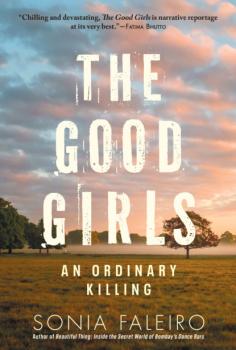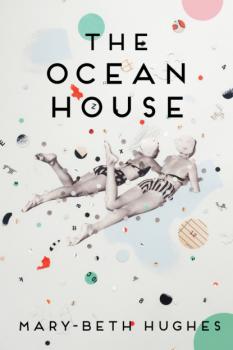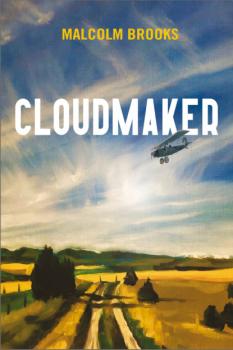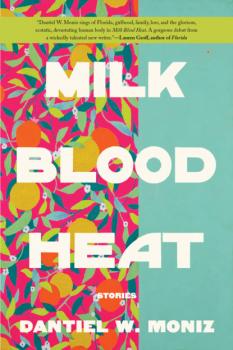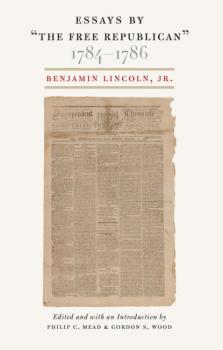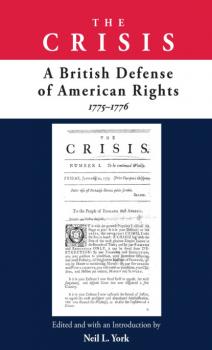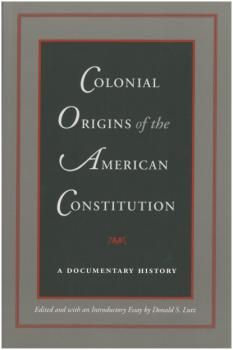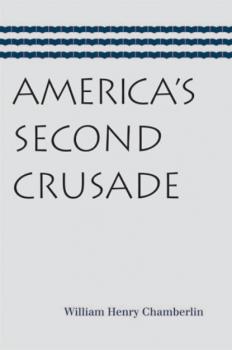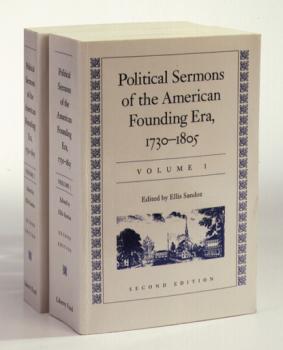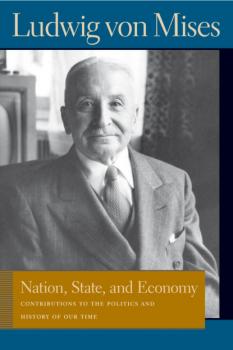Ingram
Все книги издательства IngramThe Good Girls
An utterly immersive work of intelligent, high end true crime, The Good Girls combines the thrill of investigation with the art of literary narrative non-fiction. A remarkable excavation of a case that shocked a nation and exposed the dark heart of contemporary India. It will stand alongside such classics as Katherine Boo’s Behind the Beautiful Forevers , John Berendt's Midnight in the Garden of Good and Evil , and Maggie Nelson's The Red Parts . Will also appeal to fans of smart sociological crime stories which use a case as a starting point to peel back the layers of a society and its mores – such as Richard Lloyd Parry's People Who Eat Darkness , Valeria Luiselli’s Lost Children Archive, Robert Kolker's The Lost Girls, as well as celebrated true crime podcasts like Serial[i] and [i]STown. Sonia Faleiro is an award-winning writer and journalist, and the winner of the Karmaveer Puraskaar Award for Social Justice. Her last book, Beautiful Thing, was named Sunday Times Travel Book of the Year, Time Out 's Subcontinental Book of the Year, and an Economist, NPR, CNN, Time Out, Guardian, San Francisco Chronicle, Kirkus, and Observer Book of the Year. The book was described by Kiran Desai as 'a magnificent piece of reportage', as 'reporting at its best' by Junot Diaz, and as 'a masterpiece of observation' by William Dalrymple. Faleiro has earned a national reputation for smart commentary on contemporary social issues of India through her frequent contributions to the New York Times, Guardian, Financial Times and others.
The Ocean House
Mary-Beth Hughes has been critically acclaimed since her first novel, Wavemaker II was published in 2003. Hughes has been championed by Donald Antrim, Yiyun Li, Rick Moody, Mary Gaitskill, David Gates and Lorrie Moore. Her sharp, spare literary style will draw fans of Ann Beattie, Alice Munro, Annie Proulx, Lydia Millet, and Amy Hempel. Mary-Beth Hughes’s first novel, Wavemaker II , was a New York Times Notable Book. Her collection, Double Happiness , won a Pushcart Prize and was also selected as a New York Times Notable Book . Her last novel, The Loved Ones , was a New York Times Editors’ Choice. She is widely reviewed by critics across the board, including the New York Times Book Review[i] and the [i]New Yorker . This new collection of linked short stories explores relevant themes of sexual assault and the psychological effects of trauma on the female body. Grounded in the scenic backdrop of wealthy beach towns on the Jersey Shore, Mary-Beth Hughes dexterously navigates questions of socio-economic disparity, class and gender, mental health, and the stark realities of motherhood and the loss of one’s children.
Cloudmaker
From the author of the national bestseller Painted Horses , a novel set during the Age of Aviation, in which a young tinkerer and an aspiring pilot building their own airplane unexpectedly come into possession of a rare Lindbergh flight watch owned by a bank robber whose fellow criminals want it back. From the nationally bestselling author of Painted Horses , Malcolm Brooks returns with a soaring, spirited novel set during the summer of Amelia Earhart’s final flight—a tale of American ingenuity and optimism set against the backdrop of a deepening Great Depression. The summer of 1937 will be a turning point for fourteen year old Houston “Huck” Finn. When he and a friend find a dead body in a local creek, a rare Lindbergh flight watch on its wrist, it seems like a sign. Huck is building his own airplane, a fact he has concealed from his mother. That summer also marks the arrival of his cousin Annelise, sent to live with the family under mysterious circumstances. As it turns out, she has had flying lessons—another sign. As Huck’s airplane takes shape, so does his burgeoning understanding of the world, including the battle over worldliness vs. godliness that has split Annelise from her family, and, in a quieter way, divides Huck’s family too. And meanwhile, there’s the matter of the watch, which it turns out the dead man’s cohort of bank robbers would very much like back. In Brooks’ trademark “lush, breathtaking prose” ( San Francisco Chronicle on Painted Horses ) and with a winking nod to the Sam Clemens who inspired its hero’s nickname, Cloudmaker is a boisterous, heartfelt novel that brings to life the idealism, inventiveness, traditionalism, and deep contradictions of the American spirit.
Milk Blood Heat
This is an electrifying debut that announces a major talent. Set in the author's home state (she is from Jacksonville, FL), each plot-driven and novelistic story follows characters who are grappling with a key moment in their lives— traumas past or present, losses of faith, love, or loved ones— and are searching for meaning in the self. Moniz is astonishing at depicting with nuance class, race, friendship, and familial inheritances and gifted in delivering sharp shocks within each story's plot. She is beloved and well-connected in the literary world and there has already been an outpouring of early praise for her and the book from Lauren Groff, Nafissa Thompson-Spires, Jamel Brinkley, Nana Kwame Adjei-Brenyah, Danielle Evans, and T Kira Madden. We expect even more in the coming months, as we continue to get galleys to her friends and supporters including Joy Williams, Kristen Arnett, Teju Cole, Rowan Hisayo Buchanan, to name just a few. Moniz has already won prizes for her stories. The titular Milk Blood Heat was awarded the 2018 Alice Hoffman Prize for Fiction ( Ploughshares ), and «Outside the Raft» won the Cecelia Joyce Johnson Emerging Writer Award at the Key West Literary Seminar. She was the recipient of a Tin House Scholarship, and this year was selected as the writer in residence at Lighthouse Works (whose past alum include Anna Noyes). She was also one of ten finalists for the highly coveted Princeton Arts Fellowship. Milk Blood Heat will appeal to fans of A Lucky Man by Jamel Brinkley, Florida by Lauren Groff, We the Animals by Justin Torres, Goodnight Beautiful Women by Anna Noyes, Antonya Nelson’s short story collections, especially Female Trouble ; as well as readers of fiction about sex, desire, and morality. Moniz’s work has been published in Apogee Journal , Ploughshares , Pleiades , Joyland , Tin House , McSweeney's Quarterly Concern , and most recently, The Yale Review , in April 2020.
Essays by “The Free Republican,” 1784–1786
This is the first modern publication of ten essays published in the popular Boston newspaper The Independent Chronicle, a significant intellectual event in Massachusetts politics.The essays deal primarily with the problem of mixed government in a republic. Lincoln writes, “Two distinct and different orders of men seems incident to every society,” and these “two contending interests,” fed by a “spirit of jealousy and distrust,” would always be in dispute with one another. “Whether the parties to the contests style themselves the Rich and the Poor, the Great and the Small, the High and the Low, the Elders and People, Patricians and Plebeians, Nobility and Commons, still,” the Free Republican writes, “the source and effects of the dispute are the same.”Lincoln saw this division of men directly linked with property: “Power, or the ability of controlling others, ever has been, and ever will be attached to property. . . . The glare of wealth, and the splendor of its favours, will create an influence which no civil constitution can control.” To Lincoln the solution was obvious: “Let us therefore regulate an evil we cannot prevent.” The interests of the “Few” and of the “Many” should be represented in a house of a bicameral legislature with the executive preserving the balance between the two parties. “A balance,” Lincoln writes, “supposes three things, the two scales and the hand that holds it.”Lincoln’s essays anticipate John Adams’s Defence of the American Constitutions (1787) on every major point. It is doubtful that Adams read the essays, but the educated elites in Massachusetts had been discussing the problems of organizing government since 1776. The editors believe that Lincoln’s essays grew out of a conversation that Massachusetts people were having about the problem of a bicameral legislature in a republic. The publication of these essays may provoke an entirely new appraisal of the political thinking of the founding era.Philip C. Mead is historian and curator of the Museum of the American Revolution in Philadelphia, Pennsylvania.Gordon S. Wood is Alva O. Way University Professor Emeritus at Brown University. He is the author of many works, including The Radicalism of the American Revolution (1992), which won the Pulitzer Prize for History and the Ralph Waldo Emerson Prize in 1993, and Empire of Liberty: A History of the Early Republic, 1789–1815 (2009), which was given the Association of American Publishers Award for History and Biography in 2009, the American History Book Prize by the New York Historical Society for 2010, and the Society of the Cincinnati History Prize in 2010. In 2011 he was awarded a National Humanities Medal by President Obama and the Arthur M. Schlesinger Jr. Award from the Society of American Historians.
The Crisis
The Crisis was a London weekly published between January 1775 and October 1776. It was the longest-running weekly pamphlet series printed in the British Atlantic world during those years, and it used unusually bold, pithy language. Neither the longevity of the effort nor the colorful language employed would be reason enough to collect and print all ninety-two issues under one cover in a modern edition. The Crisis lays claim to our attention because of its place in the rise of freedom of the press, its self-conscious attempt to create a transatlantic community of protest, and its targeting of the king as the source of political problems—but without attacking the institution of monarchy itself.The Crisis was condemned informally by leaders in the British government, and then formally in court, as a dangerous example of seditious libel. Copies of it were publicly burned, and yet publication continued uninterrupted. The men behind The Crisis were determined to interest the British public in American affairs and were no doubt pleased when various issues were reprinted in the colonies. They played on shared beliefs and shared fears: beliefs in the existence of fundamental rights, rights beyond the reach of any government, and the fear that loss of those rights in Britain’s American colonies could lead to their loss in Britain itself. They denounced George III in language at once harsh and florid, and did so many months before Thomas Paine’s Common Sense. Even so, The Crisis did not call on Britons to overthrow monarchy with a republic, and its ardor for the Patriot cause cooled once Revolutionary Americans declared their independence. It stands as proof that strident rhetoric does not necessarily lead to radical political action. Its history also shows that ideas, once unleashed, take on a life of their own.Neil L. York is professor of history at Brigham Young University. He is the author or editor of a dozen books, including, most recently, The American Revolution, 1760–1790: New Nation as New Empire.
Colonial Origins of the American Constitution
This landmark collection of eighty documents created by the American colonists—and not English officials—is the genesis of American fundamental law and constitutionalism. Included are all documents attempting to unite the colonies, beginning with the New England Confederation of 1643.Donald S. Lutz is Professor of Political Science at the University of Houston. Please note: This title is available as an ebook for purchase on Amazon, Barnes and Noble, and iTunes.
America’s Second Crusade
In this work William Henry Chamberlin offers his perspective as a seasoned journalist on the United States’ involvement in World War II. Written only five years after the unconditional surrenders of Germany and Japan, the book is a window into its time.William Henry Chamberlin (1897–1969) was an American journalist best known for his writings on the Cold War, Communism, and U.S. foreign policy. Please note: This title is available as an ebook for purchase on Amazon, Barnes and Noble, and iTunes.
Political Sermons of the American Founding Era: 1730–1805
The early political culture of the American republic was so deeply influenced by the religious consciousness of the New England preachers that it was often through the political sermon that the political rhetoric of the period was formed, refined, and transmitted. Political sermons such as the fifty-five collected in this work are unique to America, in both kind and significance. Political Sermons of the American Founding Era thus fills an important need if the American founding period is to be adequately understood.Ellis Sandoz is Professor of Political Science and Director of the Eric Voegelin Institute at Louisiana State University.Please note: This title is available as an ebook for purchase on Amazon, Barnes and Noble, and iTunes.Hardcover is temporarily available at the paperback price.
Nation, State, and Economy
Essential to Mises’s concept of a classical liberal economy is the absence of interference by the state. In World War I, Germany and its allies were overpowered by the Allied Powers in population, economic production, and military might, and its defeat was inevitable.Mises believed that Germany should not seek revenge for the peace of Versailles; rather it should adopt liberal ideas and a free-market economy by expanding the international division of labor, which would help all parties. “For us and for humanity,” Mises wrote, “there is only one salvation: return to rationalistic liberalism.”Ludwig von Mises (1881–1973) was the leading spokesman of the Austrian School of economics throughout most of the twentieth century.Bettina Bien Greaves is a former resident scholar and trustee of the Foundation for Economic Education and was a senior staff member at FEE from 1951 to 1999.Please note: This title is available as an ebook for purchase on Amazon, Barnes and Noble, and iTunes.
